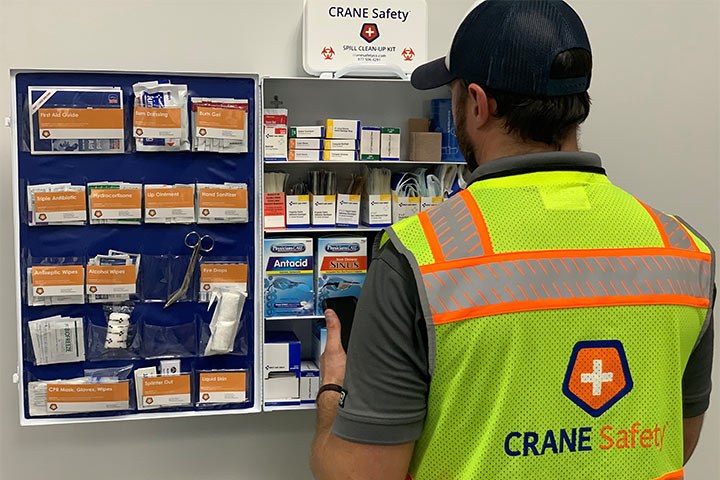

While the vast majority of first aid companies are providing a valuable service at a market price, it seems that coming out of the pandemic more and more companies are employing what we consider to be “questionable practices”. These include, but are not limited, to putting sales targets ahead of customers’, deploying predatory pricing on in-demand product, providing confusing invoices and taking advantage of companies first aid cabinets. The good news is we are here to help.
Service Charges: Do you have a service charge? Does your service charge keep going up? While a nominal service charge can be expected to offset the cost of gas, labor, overhead, etc. over time if left unchecked can become a larger and larger share of your invoice. These charges tend to creep up over time, are often buried at the bottom of your invoice, can be assessed on a per cabinet basis and nearly always more than $15/month. Helpful tip: If you have more than one first aid cabinet and/or your invoice is over $150 call your provider and have these charges removed or hire a new provider who does not charge them… trust us they are out there.
Product You Don’t Need: It is common practice for companies to introduce new products to your cabinet. This can be a huge value add for businesses with specific needs and is often a welcome by safety managers. Where this practice goes south is when companies run “promotions” whereby the service professionals load up every first aid cabinet with “Product X” at $29.95. This can mean hundreds of dollars in added cost that you may not have been aware of. Often these products are left to expire in your cabinets. Helpful tip: Review the contents of your first aid cabinet and your invoice, if there are products you don’t want or need have them removed from your cabinet or hire a provider who provides a consistent cabinet fill at a flat rate.
High Invoicing: Like everything else in business stability is critical and being able to predict costs is essential to staying under budget. All too often first aid companies deploy perverse sales incentive structures that encourage your service representative to put as many items in your cabinets as possible. This leads to ever increasing invoices that can put any business over budget in a matter of months. Helpful tip: Do not sign a blank check to your service provider by allowing them to put whatever they want in your cabinet. Trust us they will take advantage of it. Set a ‘not to exceed’ budget limit or our recommendation is to hire a provider that has a flat rate billing model so you can “set it and forget it”.
Cleaning Wipe: Having a clean cabinet is the expectation. No employee wants to put ibuprofen in their mouth that is covered in dust. A more recent trend has been charging for disinfectant wipes to clean the first aid cabinet, a service that used to be an expectation. These cleaning fees are often between $5-$10 per cabinet which over the course of a year has the potential to cost you hundreds. Helpful tip: Inspect your invoice and get this line item removed or hire a provider that does this free-of-charge.
Expired Product: Most products that go into a first aid cabinet have around a 2-year expiration. While it is no secret product expires, too often, we see providers stock items that are either not needed or simply stock too much. This means every product in your cabinet that has an expiration date will need to be replaced every two years. This creates peaks and valleys in your invoice that can create real headaches on your budget. Helpful tip: While at times expiring products is inevitable there are flat rate service programs out there that virtually eliminate this problem by providing a flat fee no matter what expires or what you use.